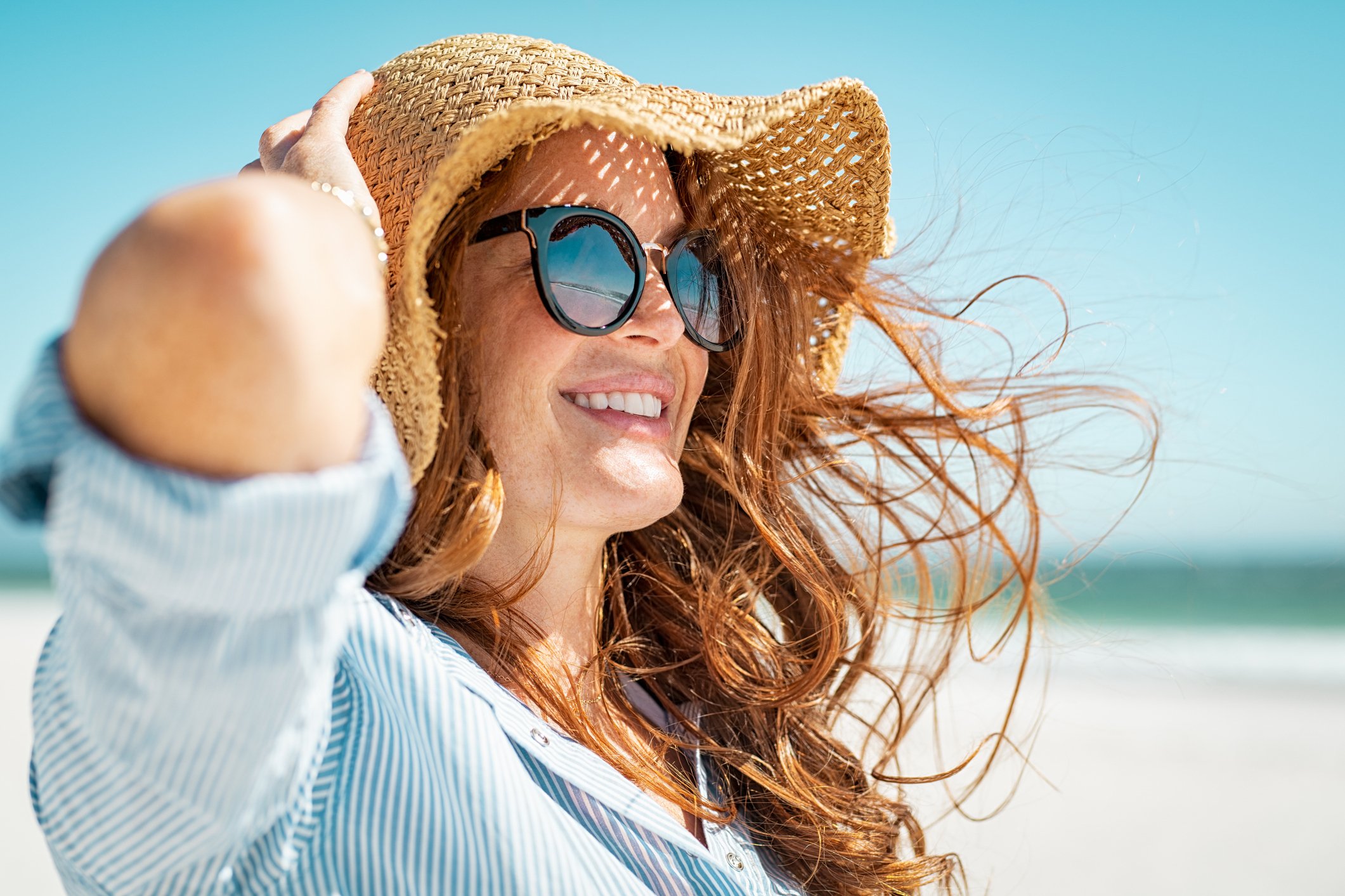Protect your skin: UV Safety Month tips
July is UV Safety Awareness Month. So, what exactly does UV safety mean? With warmer weather, it’s a reminder to protect ourselves from the harmful effects of ultraviolet (UV) radiation that comes from the sun. Ultraviolet rays, particularly Ultraviolet A (UVA) and Ultraviolet B (UVB), can cause immediate and long-term harm, including:
- Sunburns and premature skin aging
- Eye damage, including cataracts
- Increased risk of skin cancer: According to the National Institutes of Health (NIH), UV radiation is linked to 65% of melanoma and 90% of non-melanoma skin cancer cases.
Whether you're hitting the beach, working outdoors, or simply enjoying a sunny day, take these steps to protect your body from UV damage:
- Wear sunscreen
Sunscreen reflects or absorbs UV rays to protect your skin. Use broad-spectrum sunscreen with a sun protection factor (SPF) of at least 30. Apply it generously 15 minutes before going outside and reapply every two hours, or after swimming or sweating. Check the expiration date on your sunscreen bottle before applying because it does expire. Learn more about which sunscreen to choose.
- Cover up
Wear protective clothing like long-sleeved shirts and rash guards, wide-brimmed hats, and UV-blocking sunglasses.
- Find shade
Limit direct sun exposure, especially between 10 a.m. and 4 p.m. when UV rays are strongest. Pack an umbrella or canopy for shade during long beach days or cookouts.
- Check the UV index
A cloudy day doesn’t necessarily mean you’re safe from the sun’s rays. The UV index helps you plan outdoor activities safely by indicating the day’s risk level. The index’s scale goes from 1 (low risk) to 11 (extreme risk), and many weather websites and apps include it.
- Avoid tanning beds
Tanning beds emit harmful UV radiation and are linked to a higher risk of melanoma, especially in younger users.
UV Safety Month is a great time to check your sun habits and make protective changes. A few simple habits can go a long way in preserving your skin's health and reducing your cancer risk. According to Harvard Medical School, individuals who meet one or more of the following criteria can benefit from regular skin exams:
- Dozens of atypical moles
- Family history of melanoma and atypical moles
- Previous skin cancer of any kind
- Genetic mutations or predisposition
- Organ transplantation or inflammatory bowel disease
- History of blistering sunburns
- Past use of a tanning bed
If you have any skin concerns, talk with your doctor or schedule an appointment with a dermatologist. Remember, protecting yourself from UV radiation doesn't mean completely avoiding the outdoors. It just means being smart about sun exposure.
Enjoy the warm weather and explore more essential safety tips for summer.
